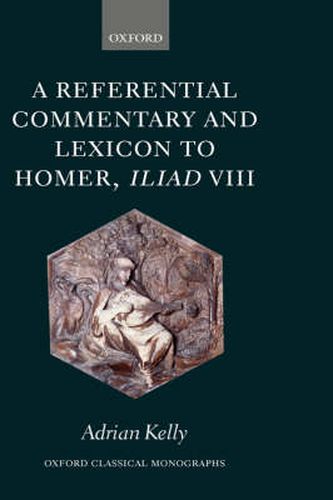Readings Newsletter
Become a Readings Member to make your shopping experience even easier.
Sign in or sign up for free!
You’re not far away from qualifying for FREE standard shipping within Australia
You’ve qualified for FREE standard shipping within Australia
The cart is loading…






This book aims to provide the reader of Homer with the traditional knowledge and fluency in Homeric poetry which an original ancient audience would have brought to a performance of this type of narrative. To that end, Adrian Kelly presents the text of Iliad VIII next to an apparatus referring to the traditional units being employed, and gives a brief description of their semantic impact. He describes the referential curve of the narrative in a continuous commentary, tabulates all the traditional units in a separate lexicon of Homeric structure, and examines critical decisions concerning the text in a discussion which employs the referential method as a critical criterion. Two small appendices deal with speech introduction formulae, and with the traditional function of Here and Athene in early Greek epic poetry.
$9.00 standard shipping within Australia
FREE standard shipping within Australia for orders over $100.00
Express & International shipping calculated at checkout
This book aims to provide the reader of Homer with the traditional knowledge and fluency in Homeric poetry which an original ancient audience would have brought to a performance of this type of narrative. To that end, Adrian Kelly presents the text of Iliad VIII next to an apparatus referring to the traditional units being employed, and gives a brief description of their semantic impact. He describes the referential curve of the narrative in a continuous commentary, tabulates all the traditional units in a separate lexicon of Homeric structure, and examines critical decisions concerning the text in a discussion which employs the referential method as a critical criterion. Two small appendices deal with speech introduction formulae, and with the traditional function of Here and Athene in early Greek epic poetry.